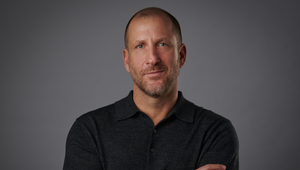
NABS Research Reveals Adland Stress

A study released today has revealed that a quarter of workers (23%) in the creative and media sector find their working environment overly stressful most of the time – and two-thirds (65%) admit to reaching points in their career when they felt so stressed they were unable to cope.
It also found that 84% percent of advertising and media employees say demands on them have risen over the past year, one in seven (14%) now works more than 55 hours a week and four in ten (41%) mainly attribute their stress to external sources such as client demands.
What’s more, over half (52%) are worried about telling senior staff they’re feeling stressed, in case it’s viewed as a sign of weakness (rising to 69% among newly-employed graduates). Ironically however a majority (77%) didn’t view a colleague who admitted to suffering from stress as being weak.
The survey of over 500 UK media and advertising professionals was commissioned by NABS, the National Advertising Benevolent Society. With government data showing that stress costs the UK £6.5 billion per annum from lost work days, the impact is felt keenly in the high-pressure creative world.
And agencies seem to be particularly affected: 90% of workers in media agencies feel demands have increased this past year, as against 77% of those working for media owners. Meanwhile creative agencies are apparently the most stressful environments in the sector: 26% of employees describe them as overly stressful most of the time.
Zoë Osmond, CEO of NABS, said: “Every caller to our Advice Line is experiencing some element of stress or anxiety even if this is not the presenting issue and at least ten percent of the calls we receive specifically complain of stress-related pressures and sickness. Issues such as increasing workloads, client demands and presenteeism are rampant in the advertising and media sector – and they all lead to a significant rise in work-related stress. This has lead NABS to respond with our specially themed Resilience Programme.”
NABS Resilience Programme is a series of expert services, workshops and support collateral designed to help build resilience to stress among creative and media professionals. It launches in October 2013 and full details are to be found here. It includes:
Advice Line:
A team of trained advisors are available to give individuals a number of immediate coping strategies to help alleviate stress/anxiety.
‘Building resilience to pressure’ workshop:
A series of knowledge sharing, interactive workshops for all levels, designed to equip individuals with long-term tools and techniques to approach pressured situations in a more positive and solutions focused way.
Wellbeing workshops:
NABS will be hosting a series of workshops delivered by external experts. They will enlighten participants on the benefits of mindfulness, nutrition, sleep and meditation to give them more zest and energy in their daily lives.
1:1 stress coaching:
Confidential 1:1 coaching to help individuals explore and gain a better understanding of their ‘stress’ triggers and the impact that this has on confidence, self-belief and performance, so they can gain a healthier, more positive perspective to stress and feel more empowered.
Cognitive Behavioural Therapy (CBT):
1:1 therapy aiming to change persistent unhelpful thinking and behaviours. CBT can be effective in managing a number of problems such as depression, grief, mood swings, addictions, anger management, low self-esteem and acute anxiety.
Zoë Osmond adds: “Stress shouldn’t be a taboo subject in agencies and media companies. We want to help build a more open industry culture and encourage people to take preventative measures to mitigate the pressures they feel every day.
“The Resilience Programme uses both our own expertise and external parties to help employees better manage stress, pressure and anxiety. With education and information we can make positive changes to how employees approach their daily work, but we can also directly improve the bottom line through better performance, enhanced staff retention and less absenteeism.”
Other research findings:
- Women are more likely to feel that demands on them have increased over the past 12 months (87% vs. 80% of men). 91% of 18-24 year-olds feel the same
- Only 4% of creative professionals say their workplace isn’t stressful
- Over half (56%) of those in the industry believe stress only has a negative impact
- Men are more likely to feel stress primarily from external factors such as clients (47% vs. 37% of women), whereas women are more likely to attribute internal factors such as their own drive to succeed (12% vs. 9%)
- Although 52% feel that telling senior staff about their stress would be viewed as weakness, three-quarters (77%) of workers – and 83% of directors – said that they wouldn’t see someone as weak if they admitted to feeling stressed
- Women are more likely to have reached a point where they were so stressed they couldn’t cope (68%, as against 59% of men)
- The most common symptoms of stress among workers in the sector are an inability to cope, insomnia and feeling physically unwell













